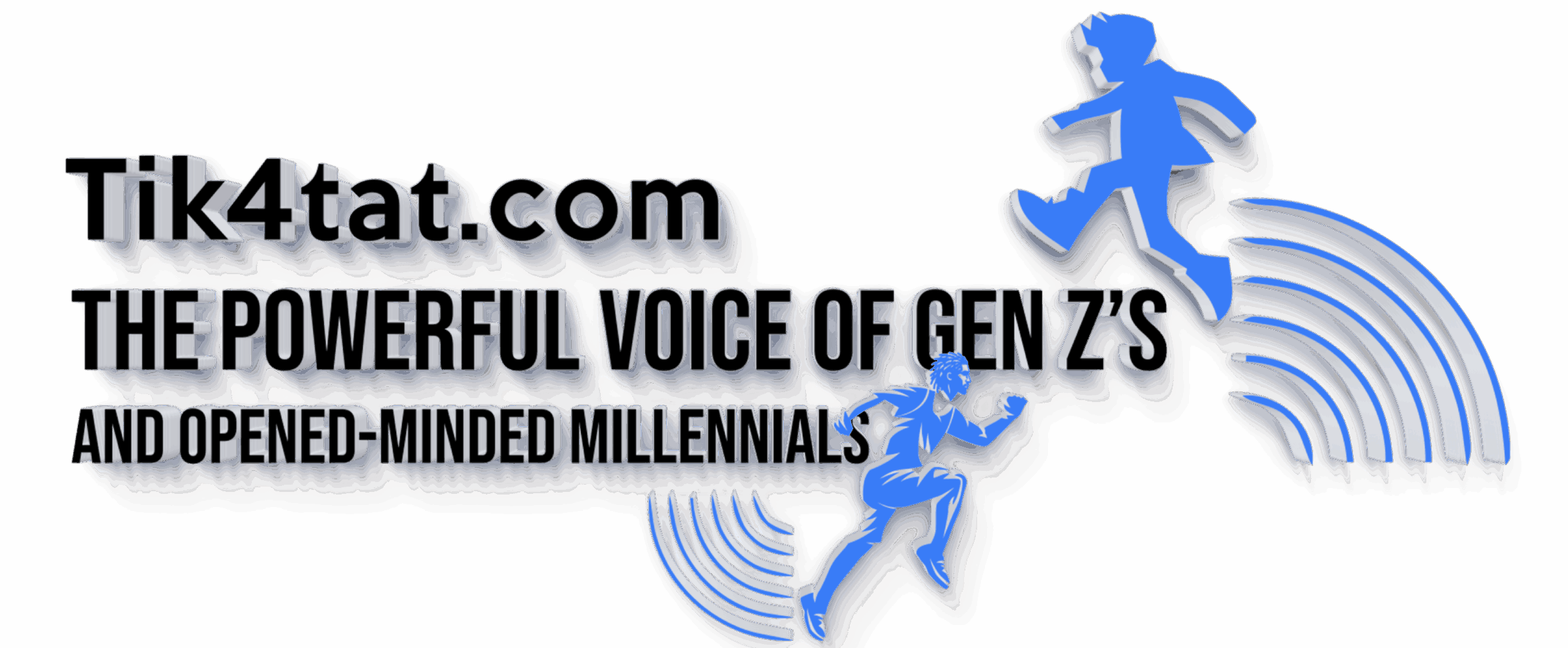Gen Z’s Defining Passion: A Livable Planet and an Equitable Future, Tik4tat

I. Introduction: The Defining Crisis of a Generation
Good morning, Tik4Tat Research Team. As you delve into understanding the intricate motivations and behaviors of Generation Z, it’s paramount to recognize the issues that not only capture their attention but fundamentally shape their worldview and drive their actions. While this cohort (broadly defined as individuals born between 1997 and 2012) navigates a complex digital and socio-political landscape, one concern rises above many others in its urgency and mobilizing power: climate change, inextricably linked with the principles of environmental and social justice. This is not merely another item on a list of youthful concerns; for a significant portion of Gen Z, it is the defining crisis of their time, an existential threat that casts a long shadow over their present and future, compelling them to become some of the most vocal and active proponents for systemic change. This document aims to provide an extensive analysis of why this issue resonates so profoundly with this generation and how their engagement is reshaping activism and societal expectations.
II. The Weight of a Warming World: Understanding Gen Z’s Climate Reality
Gen Z is unique in that they are the first generation to have grown up with the palpable realities and scientific consensus of anthropogenic climate change as a constant, undeniable backdrop to their lives. Unlike previous generations who may have witnessed the dawning awareness of environmental issues, Gen Z inherited a crisis already in progress, its effects increasingly visible and its future implications starkly delineated by scientific bodies worldwide.
- Inheritors of an Escalating Crisis: From their earliest years of awareness, climate change has not been a distant, abstract threat but an unfolding reality. They have been educated about greenhouse gases, melting ice caps, and rising sea levels with a clarity and urgency that was less pronounced in the curricula of Millennials or Gen X. This early and consistent exposure has ingrained a deep understanding of the stakes.
- Direct Observation and Lived Experience: The abstract warnings of the past are now tangible experiences. Gen Z has witnessed, either directly or through the pervasive lens of digital media, an alarming increase in the frequency and intensity of extreme weather events. The devastating wildfires that ravage landscapes, the “once-in-a-century” storms that now seem to occur with unsettling regularity, prolonged droughts, and unprecedented heatwaves are not just news headlines; they are events that disrupt communities, displace populations, and serve as visceral reminders of the planet’s fragility. This direct and indirect exposure to climate impacts makes the crisis personal and immediate.
- Unprecedented Access to Information (and the Burden of Knowledge): As digital natives, Gen Z has unparalleled access to information. They can readily access scientific reports from the IPCC, follow climate scientists on social media, and see real-time data on global emissions and temperature anomalies. While this access empowers them, it also contributes to a significant burden of knowledge. They are acutely aware of the scientific consensus regarding the causes and consequences of climate change, and equally aware of the political and corporate inertia that has often stymied meaningful action. This awareness fuels both their activism and a pervasive sense of “eco-anxiety.”
- Eco-Anxiety and the Mental Health Nexus: The term “eco-anxiety” or “climate anxiety” has gained significant traction in describing the chronic fear, stress, and helplessness that many young people feel in the face of ecological disaster. For Gen Z, whose formative years are being shaped by this crisis, the psychological toll is substantial. This anxiety is not just about a distant future; it’s about the world they are inheriting now. It impacts their sense of security, their optimism, and contributes to the broader mental health challenges that are increasingly recognized within this generation. The fight for climate action, therefore, is also intrinsically linked to their fight for mental well-being.
- A Future Reimagined (or Foreclosed?): The climate crisis profoundly influences how Gen Z envisions their future. Decisions that previous generations might have taken for granted – such as career paths, where to live, or even whether to have children – are now often viewed through the lens of climate change. Some grapple with the ethics of bringing children into a world facing such profound ecological instability, while others are driven to pursue careers in sustainability, renewable energy, or climate advocacy, seeking to be part of the solution.
III. Beyond Polar Bears: The Intersectional Lens of Environmental and Social Justice
A crucial aspect of Gen Z’s engagement with climate change is their sophisticated understanding of its intersectional nature. For them, climate change is not solely an “environmental” issue siloed off from other societal problems. Instead, they overwhelmingly view it as a profound issue of justice – environmental justice, social justice, racial justice, and intergenerational justice.
- Disproportionate Impacts, Unequal Burdens: Gen Z is acutely aware that the impacts of climate change are not distributed equally. They recognize that marginalized communities – including low-income communities, communities of color, Indigenous populations, and nations in the Global South – often bear the brunt of climate-related disasters and environmental degradation, despite having contributed the least to historical emissions. This understanding moves the conversation beyond saving endangered species to protecting vulnerable human populations.
- Climate Justice as a Core Tenet: The term “climate justice” is central to Gen Z’s activism. It encapsulates the demand that climate solutions must also address existing inequalities and historical injustices. This means advocating for policies that not only reduce emissions but also support frontline communities, ensure equitable access to resources, and promote a just transition to a green economy that doesn’t leave workers and communities behind.
- Connecting the Dots: Systemic Injustice: They see the connections between environmental degradation and other forms of systemic oppression. For instance, the placement of polluting industries in predominantly Black or Latino neighborhoods (“environmental racism”), the lack of access to clean water in Indigenous communities, or the vulnerability of migrant workers to extreme heat are all seen as interconnected facets of a larger system that devalues certain lives and environments.
- Global Solidarity: Their digital interconnectedness fosters a sense_ of global solidarity. Gen Z activists in developed nations are increasingly aware of and seek to amplify the voices of their counterparts in developing countries who are already facing the most severe consequences of climate change, such as displacement due to rising sea levels or food insecurity due to desertification. This global perspective reinforces the understanding that climate change is a shared crisis demanding collective, equitable action.
IV. Digital Natives, Global Activists: How Gen Z Mobilizes and Demands Action
Gen Z’s approach to activism is as innovative as it is passionate, leveraging their innate digital fluency while also embracing traditional forms of protest. Their mobilization strategies are multifaceted and reflect their unique position as the first truly digitally native generation to come of age during a global crisis.
- The Unprecedented Power of Social Media: Platforms like TikTok, Instagram, X (formerly Twitter), and YouTube are not just for entertainment; they are powerful tools for climate education, awareness campaigns, and mobilization.
- Information Dissemination and Education: Complex scientific concepts are broken down into digestible videos, infographics, and threads. Personal stories of climate impact go viral, fostering empathy and a sense of shared urgency.
- Organizing and Mobilization: Social media is used to organize school strikes (like the Fridays for Future movement, globally recognized through Greta Thunberg, herself a member of Gen Z), coordinate protests, and launch petitions that garner millions of signatures.
- Holding Power Accountable: Gen Z uses these platforms to directly challenge corporations and policymakers, calling out greenwashing, demanding transparency, and amplifying instances of inaction or harmful environmental practices. The public nature of these platforms creates a new level of accountability.
- Beyond “Slacktivism”: Translating Online Passion into Offline Action: While sometimes criticized for “slacktivism,” Gen Z’s online engagement often serves as a gateway to deeper, more tangible forms of activism. They participate in large-scale climate marches, organize local community clean-ups, engage in voter registration drives focused on environmental issues, and increasingly, run for office themselves or support young candidates who prioritize climate action.
- Consumer Activism and Ethical Consumption: This generation is highly conscious of the power of their consumption choices. They are more likely to support brands with strong sustainability credentials, boycott companies with poor environmental records, and advocate for circular economy models. This “voting with their wallets” puts significant pressure on businesses to adopt more sustainable practices.
- A Demand for Systemic, Not Just Individual, Change: While many Gen Z individuals adopt personal lifestyle changes (e.g., reducing meat consumption, using public transport), there’s a strong understanding that individual actions alone are insufficient. Their primary demand is for bold, systemic change from governments and corporations – the entities they see as holding the most power to effect large-scale transformation through policy, regulation, and investment in green technologies.
V. Why This Matters So Profoundly: Core Motivations and Generational Identity
Understanding why climate change and environmental justice are so central to Gen Z requires looking at their core motivations and how this issue intersects with their developing generational identity.
- Existential Survival and Self-Preservation: At its most fundamental level, their passion is driven by a primal instinct for survival. The scientific projections paint a grim picture of the world they are set to inherit if drastic action is not taken. This isn’t an abstract concern; it’s about the air they will breathe, the water they will drink, and the stability of the ecosystems that support life.
- A Profound Sense of Urgency and Intergenerational Betrayal: Gen Z often expresses a palpable sense of urgency, a feeling that time is running out. This is coupled with a sense of betrayal – a belief that previous generations and current leaders have been too slow to act, too beholden to vested interests, or too shortsighted, effectively burdening youth with the consequences of decades of inaction. This can manifest as anger and frustration, but it also galvanizes them into taking matters into their own hands.
- Values-Driven and Pragmatic Idealism: Often characterized as pragmatic idealists, Gen Z is driven by a strong set of values that include fairness, equity, authenticity, and a desire for a more just world. Their climate activism is a direct expression of these values. They see the inherent unfairness in the climate crisis and are motivated to create solutions that align with their ethical framework.
- Seeking Agency and Constructing Hope: Faced with the enormity of the climate crisis, activism provides a crucial sense_ of agency. Taking action – whether online or offline – can be an antidote to feelings of helplessness and eco-anxiety. It allows them to channel their concerns into constructive efforts and to build communities of like-minded individuals, fostering a collective sense of hope that change is possible.
- Defining Their Legacy: There’s an emerging sense within Gen Z that they have a unique responsibility and opportunity to be the generation that confronts the climate crisis head-on. They are not just fighting for their own future but for the future of the planet and for generations yet to come. This desire to forge a positive legacy is a powerful motivator.
VI. Implications for the Tik4Tat Research Team (and All Stakeholders)
For a research team like Tik4Tat, understanding the depth of Gen Z’s commitment to climate and environmental justice is not just an academic exercise; it has profound practical implications:
- Authentic Engagement and Platform Relevance: If your platform, product, or service aims to engage Gen Z, authenticity on sustainability and climate issues is non-negotiable. Superficial gestures or “greenwashing” will be quickly identified and criticized. Content, features, community initiatives, or corporate social responsibility efforts that genuinely address these concerns will resonate deeply.
- Identifying Emergent Trends and Innovations: The youth climate movement is a hotbed of innovation – in communication, organizing, technology use, and policy advocacy. Observing this space can provide valuable insights into emerging social, cultural, and even technological trends that will shape the future.
- Building Trust and Brand Loyalty: Demonstrating a genuine commitment to environmental sustainability and social justice can be a powerful way to build trust and loyalty with Gen Z consumers and users. Conversely, perceived indifference or actions that exacerbate environmental problems can lead to significant alienation.
- The Future Workforce and Leadership Pipeline: As Gen Z enters the workforce and moves into leadership positions, they will bring these values with them. They will expect their employers to be environmentally responsible and socially conscious. Understanding their priorities is crucial for talent attraction, retention, and future organizational strategy.
- A Mandate for Corporate and Institutional Responsibility: Gen Z’s activism is creating a clear mandate for corporations, governments, and institutions to take meaningful and measurable action on climate change. This isn’t just about public relations; it’s about fundamental operational changes and a reevaluation of long-term responsibilities.
VII. Conclusion: The Torchbearers of a Sustainable and Equitable Future
The passion Gen Z exhibits for climate change and environmental justice is not a fleeting trend or a niche interest. It is a deeply ingrained, widely held conviction born from their unique position as inheritors of a global crisis. They are informed, digitally savvy, ethically driven, and increasingly influential. Their understanding of the interconnectedness of environmental health and social equity is reshaping the discourse and demanding a new paradigm of responsibility from all sectors of society.
From Tik4Tat Research Team, and indeed for any entity seeking to understand and engage with this generation, recognizing the centrality of this issue is fundamental. Gen Z is not just passively waiting for solutions; they are actively demanding them, creating them, and mobilizing to ensure a livable and just future. Listening to their voices, understanding their motivations, and supporting their efforts is not only insightful but essential for navigating the evolving social and economic landscape they are so powerfully shaping. They are, in many ways, the torchbearers, lighting the path toward a more sustainable and equitable world, and their journey is one we all must watch, learn from, and, where appropriate, support.
tik4tat reaearch Your Life – Your Future


